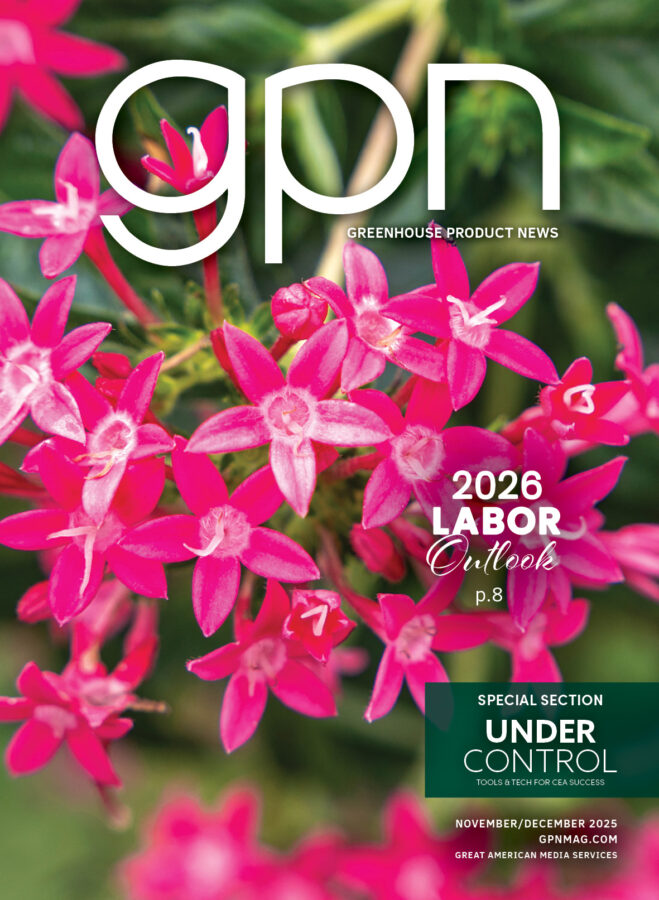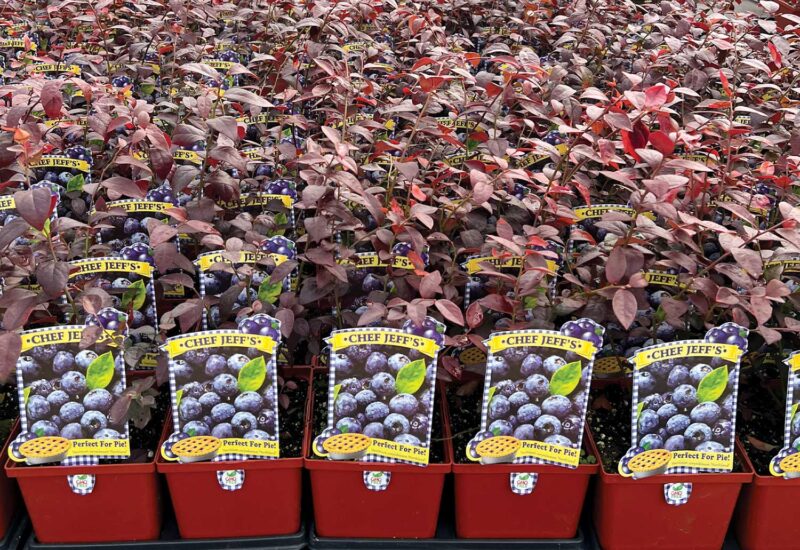
Big Grower: Planting roots at Centerton Nursery
We’re a few months into spring and enjoying all the flowers in bloom thanks to growers like Centerton Nursery in Bridgeton, New Jersey. The roots to this family-owned and -run business trace back to 1974, when founder Ray Blew’s friend, Donald McCallister, purchased some land in the Garden State. After finalizing the transaction, McCallister was diagnosed with an illness that prevented him from moving forward.
“He called my grandfather and asked if he was interested in buying the land,” said Bob Blew, vice president of Centerton Nursery. Ray, now deceased, and his wife Marlene seized the opportunity.
Three generations of Blews have helped cultivate the business. Currently owned and operated by Ray’s grandchildren, the executive team includes president Donald Blew, vice president Bob Blew and sales manager Amy Ordog (Blew). Of course, Ray will “always and forever” serve as chairman of the board. As for Marlene, she stops in weekly.
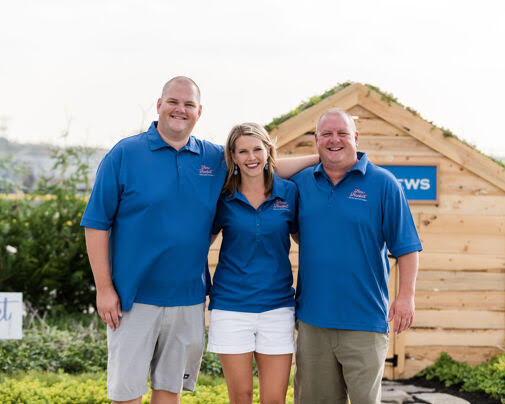
THROUGH THE YEARS
Centerton Nursery has come a long way since its early days. When established, it grew mainly azaleas and rhododendrons in a small hut. In 1977, Ray’s son Denny joined the ranks. Under his tenure, the line expanded to include broadleaf evergreens, flowering shrubs and other perennials.
The nursery continues to carry out Ray’s mission to provide the joy of plants to its employees, customers and gardeners. Like the hardy shrubs Centerton grows, the business continues to thrive with an annual production of 4.5 million units.
Centerton ships to 33 states and serves its 800-strong customer base of independent garden centers and landscapers. About 110 employees cater to customers mostly east of the Rocky Mountains, from Wisconsin to Texas and Maine to Georgia.
NEW DIRECTIONS
The bulk of Centerton’s business, which spans 220 acres and 2.4 million square feet, is in perennials and shrubs. Thanks to the team’s vision, the nursery struck when the perennial market was hot.
“In the 1980s, everyone in the industry was growing shrubs. The market became saturated, consumer interest shifted and perennials started gaining traction. When the weather is nice, people want to plant in their yards. It’s instant gratification,” Bob said.
Denny, who retired in 2013, is credited for designing a large product tag in the late 1980s. The bright-blue label offered more product information, easy-to-read text and gardening instructions — a marketing tactic that was uncommon at the time.
Soon after the labels were introduced, customers began asking for “the plants with the blue labels.” That’s when the BlewLabel brand was born. In 2005, the company began offering its products in signature blue pots. The brand now boasts more than 1,000 products.
Another operational shift occurred in 2009 when edibles were introduced, which grow from February to June. Edibles now represent more than 10% of Centerton’s business. The line has more than 300 items, including tomatoes, peppers, squash, basil, blackberries, blueberries, pumpkins and more.
“I saw the footprint in our region getting bigger and bigger,” Bob said.
GOING NATIVE
Consumers are continuing to warm up to native plants that grow without human intervention in specific regions or ecosystems. The perks: low maintenance and less watering, since they adapt to their local environments. Natives also yield colorful flowers and provide nectar for pollinators.
“This segment is growing substantially,” Bob said.
Last year, Centerton introduced TrueBlew Natives. Feedback from retailers often drives decisions.
“Retailers have been asking about hummingbirds. What do I take away from that? That shoppers want to know which plants provide nectar for hummingbirds,” Bob said.
Centerton Nursery responded by prominently placing that information on the labels.
: Centerton Nursery has an annual production of 4.5 million units.
SECRETS TO SUCCESS
Bob discussed how Centerton differs from competitors.
“There are one million things we do that are unique to Centerton,” he said. “For example, a lot of our production is done at the greenhouse. It’s more efficient than bringing everything there in bulk. We’ve been operating this way for 40 years, and we do it well.”
When transporting, more labor is needed, which comes at a cost.
Bob credited his grandfather for establishing the efficient operation. A stint in the food processing industry prompted Ray to think more like a food processor than a grower.
Automation and technology also play a vital role.
“We try to automate as much as possible,” Bob said. “This can be as simple as placing the conveyor belt in a certain place. Our pipe dream is to have a loading dock that is more automated. We’d love to figure out how to sort things for shipping since all of that is done manually.”
For the past two decades, Centerton has been employing a weather-based irrigation system that maximizes water efficiency. It also uses mobile potting machines. In software, Bob said that the industry is still catching up to the needs of growers and the problems associated with perishable products.
“Every greenhouse has its own problems,” Bob said. “So much of the software is custom written.” AdeptAg has proven to be the best system for Centerton’s needs, he said.
LABOR CHALLENGES REMAIN
Although people are a big asset to Centerton’s operation, labor remains a challenge. As of 2025, the minimum wage in New Jersey rose to $15.49 per hour. That drives up the starting pay for Centerton employees.
“Many warehouse jobs in New Jersey offer $20 an hour, so the good people immediately get gobbled up,” Bob said.
Centerton combats this by ensuring that its team feels appreciated through profit-sharing. This also results in low turnover and less time onboarding recruits.
On the other end of the spectrum are Centerton’s suppliers. Young plants represent about 30% of what the nursery grows. Most of its young plants originate from suppliers in the U.S. Europe and Japan make up a small fraction of what it purchases. Bob credited New Christie Ventures — a longtime container supplier in Connecticut — for always shipping on time.
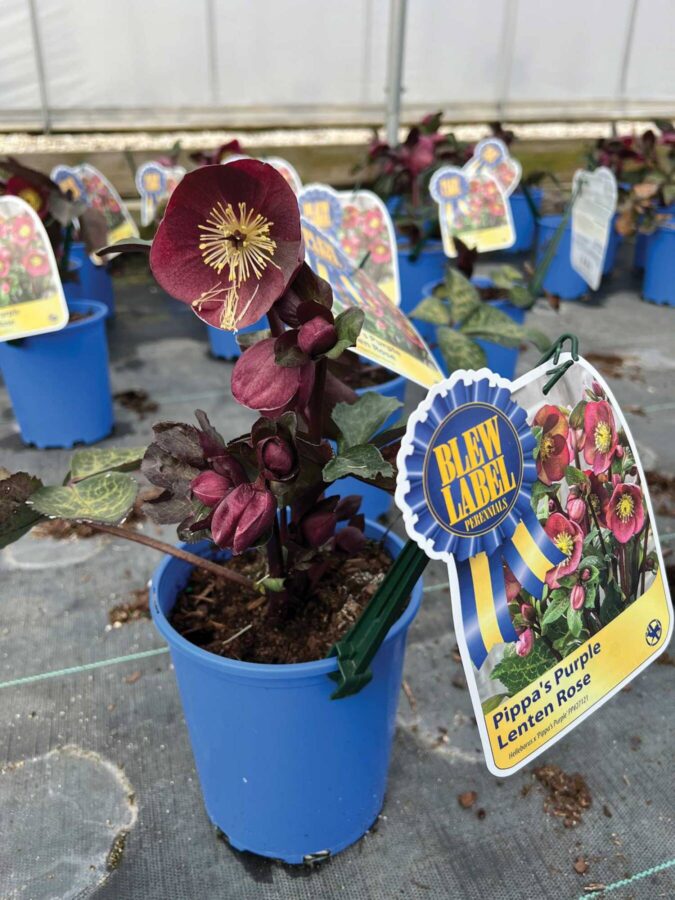
FUTURE-FOCUSED SUSTAINABILITY
The Blews continue to blaze a trail initially forged by their ancestors. They believe it is all about having the right product for the marketplace and finding opportunities to future-proof the business. That means adjusting to the market, looking ahead to what it will be in five to 10 years and planning for that now.
Sustainable, single-use plastic is a priority.
“Our industry is so incredibly married to single-use plastics,’ Bob said. “We’re trying to find a way to mitigate that and move to a different process. Someday, there will be no single-use plastic.”
Some of Centerton’s plastics are sourced from Europe. One of its plant stakes, made with 100% virgin plastic, is moving to 25% recycled by year-end.
“We’re doing a pretty good job but aim to do better,” Bob said.
For advice, learning is key. Beyond sitting in on webinars, Bob has taken classes and listens to others in the industry.
“There’s value in listening to what problems others have had and how they’ve solved them,” he said. “Learn about their biggest fails and their biggest wins.”
Centerton Nursery at a glance
Year founded: 1974
Location: Bridgeton, New Jersey
Total growing space: 220 acres
Key management personnel: Donald Blew, president and head of production; Amy Ordog, VP of sales; Bob Blew, vice president and head of IT, product development, marketing; Lauren Boger, head of operations and inventory manager; Tammy Mathias, office manager; Denise DeRue, head grower; Jimmy Martorana, production manager; Linda Labinski, propagator; Jamie Specca, assistant nursery manager; Becky MacNeill, customer service; Jill Yost-Blew, quality control, dock manager; Donna Massi, logistics; Amanda D’Antonio, purchasing manager; and Rod Miller. irrigation manager.








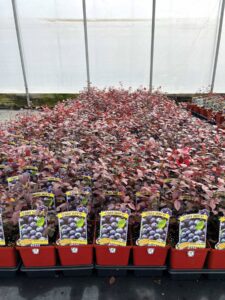
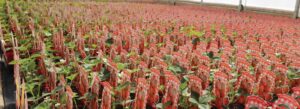

 Video Library
Video Library 

















